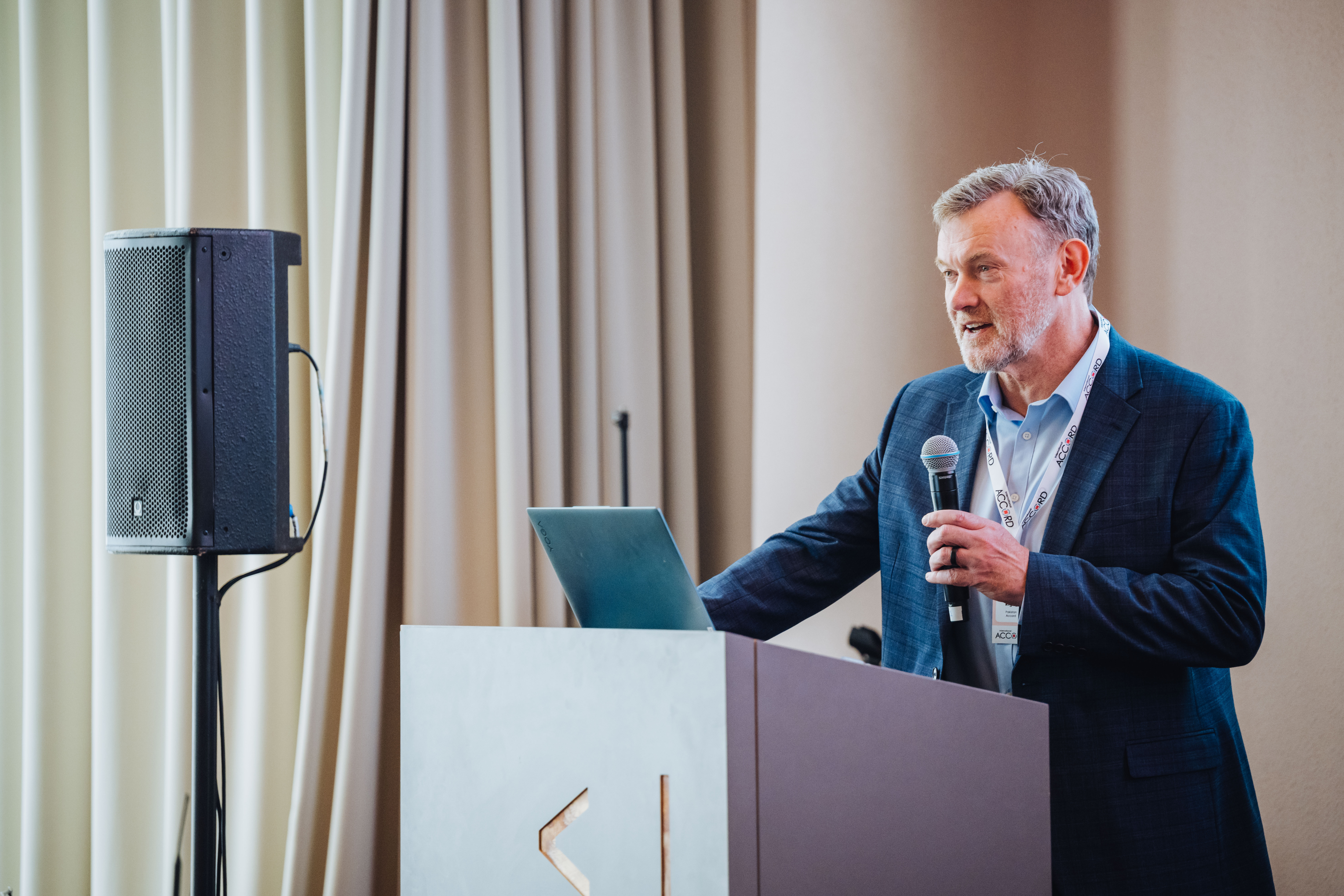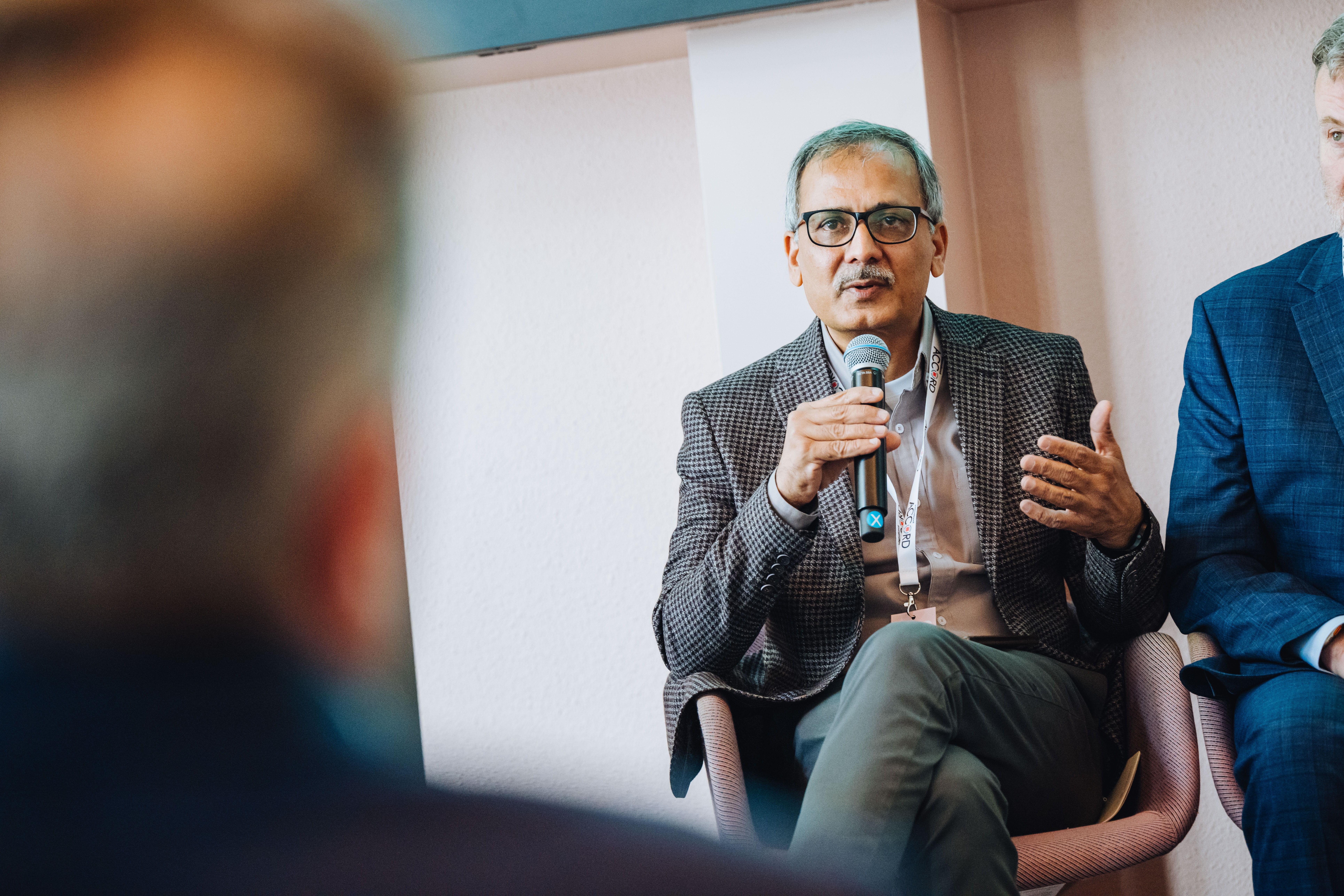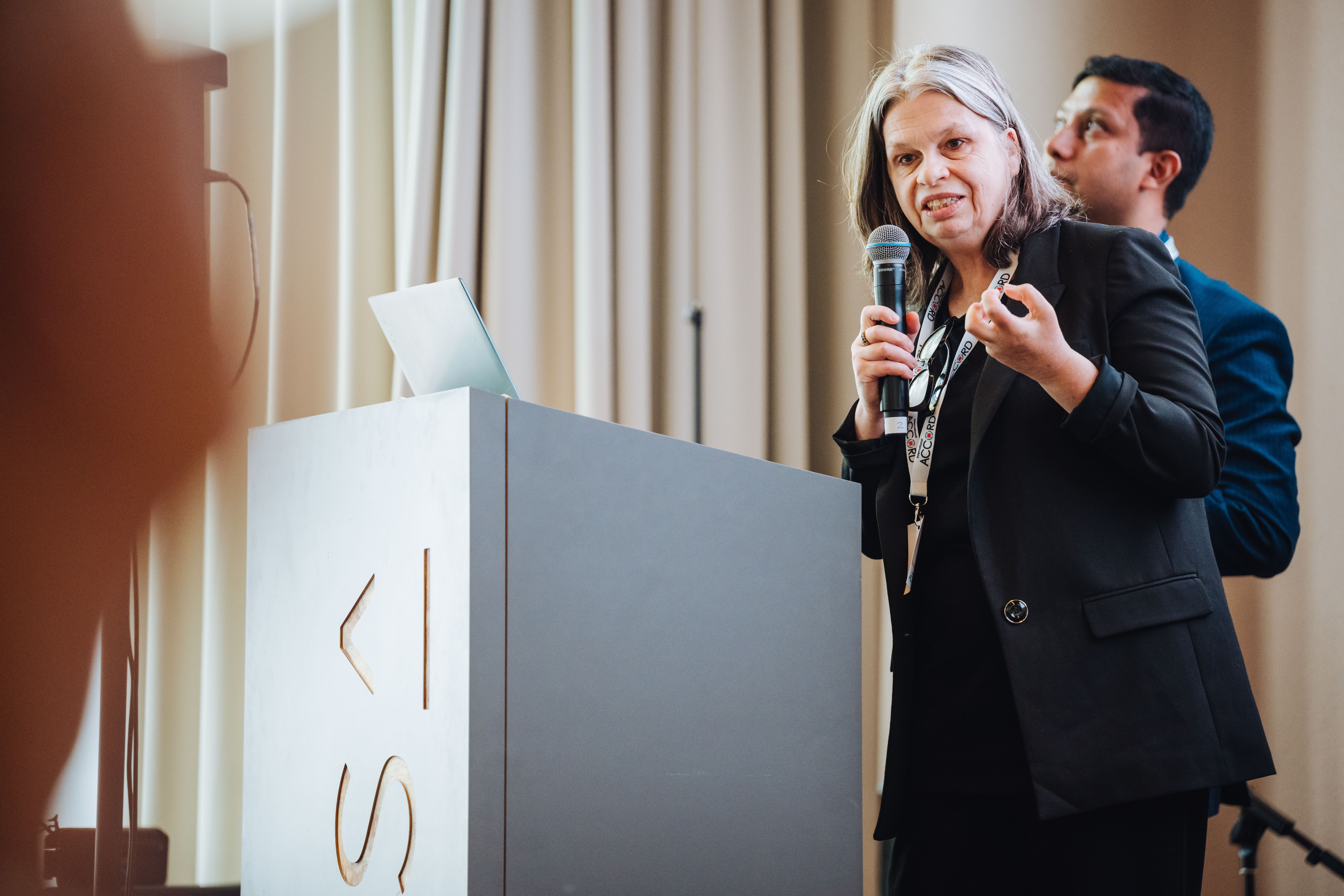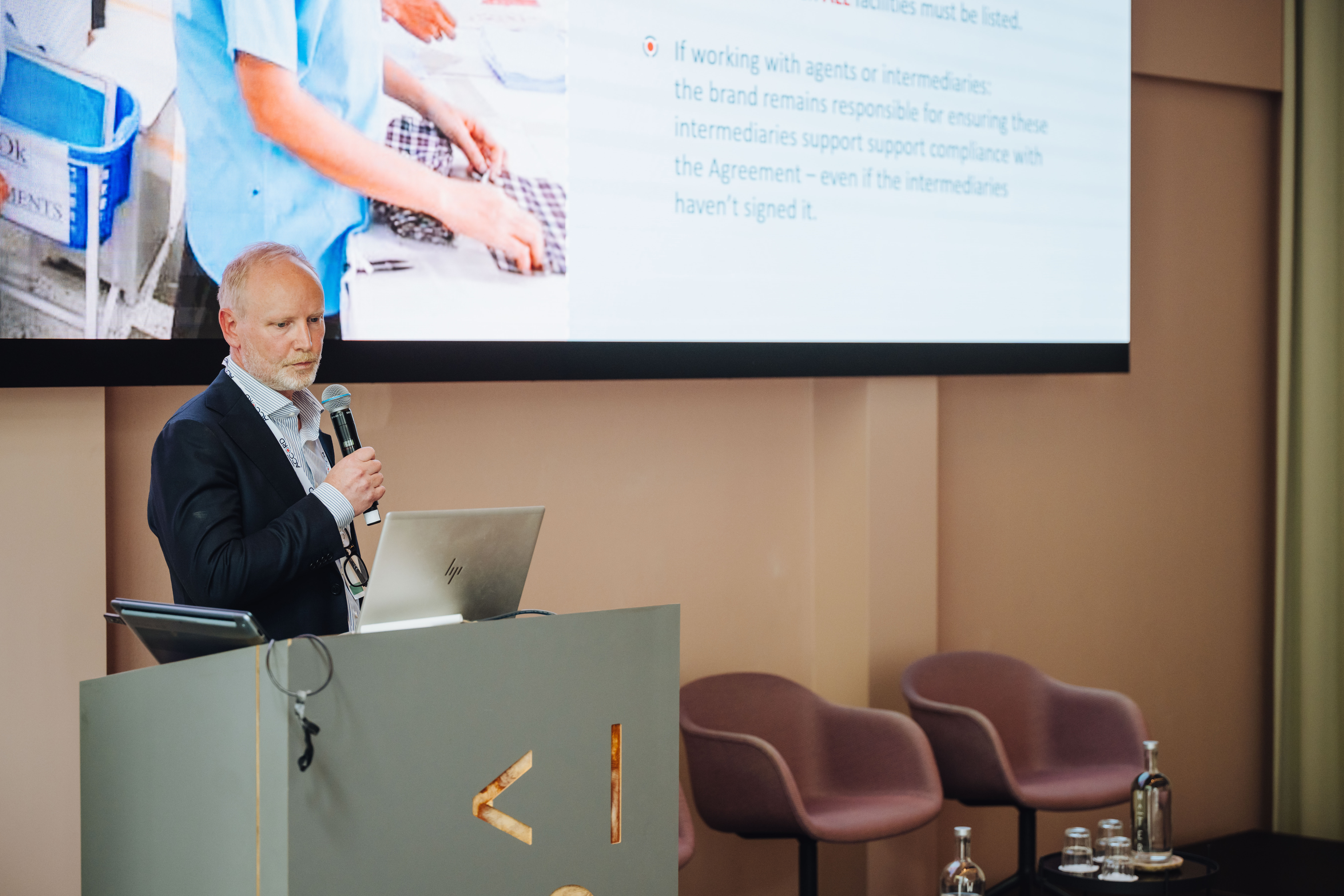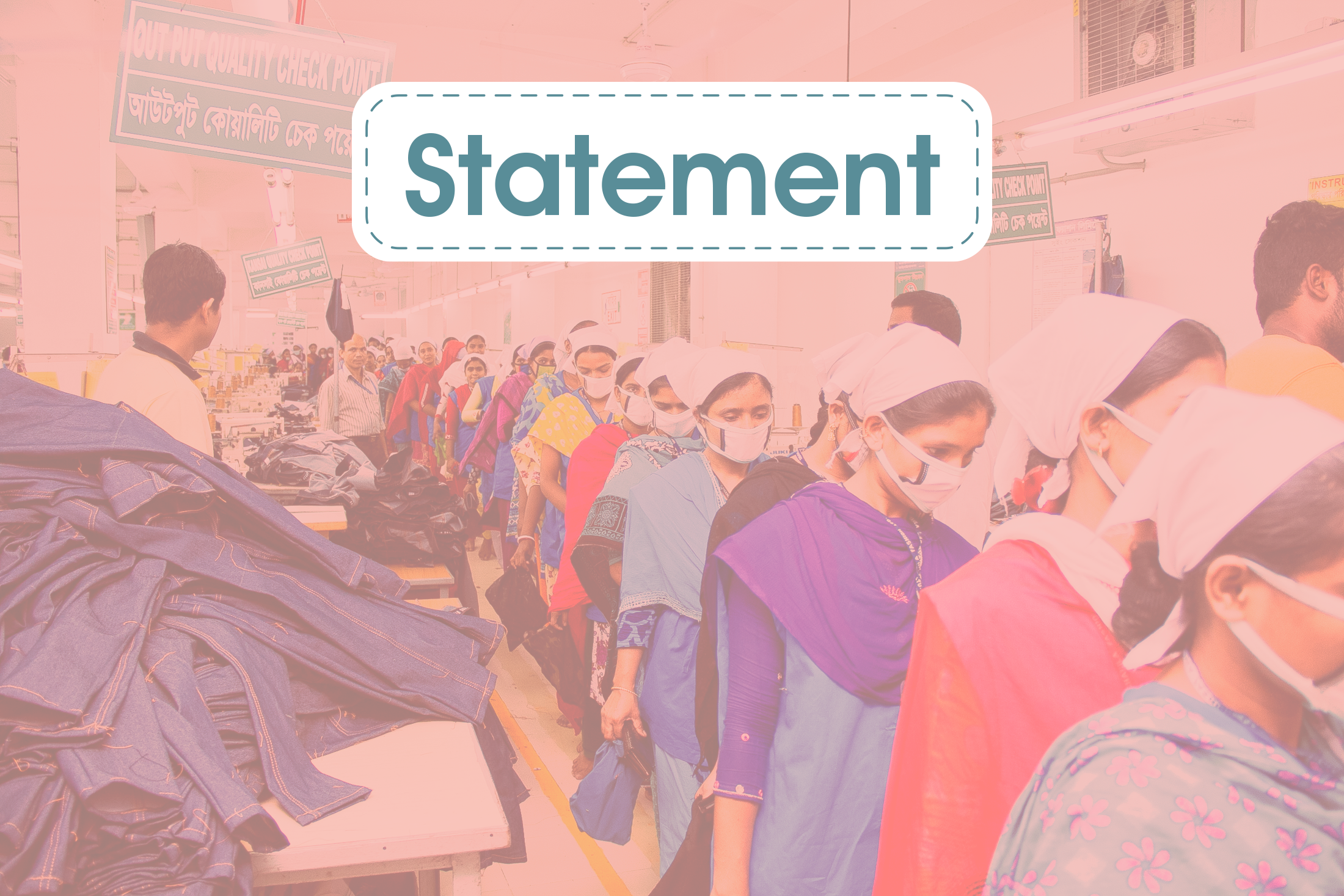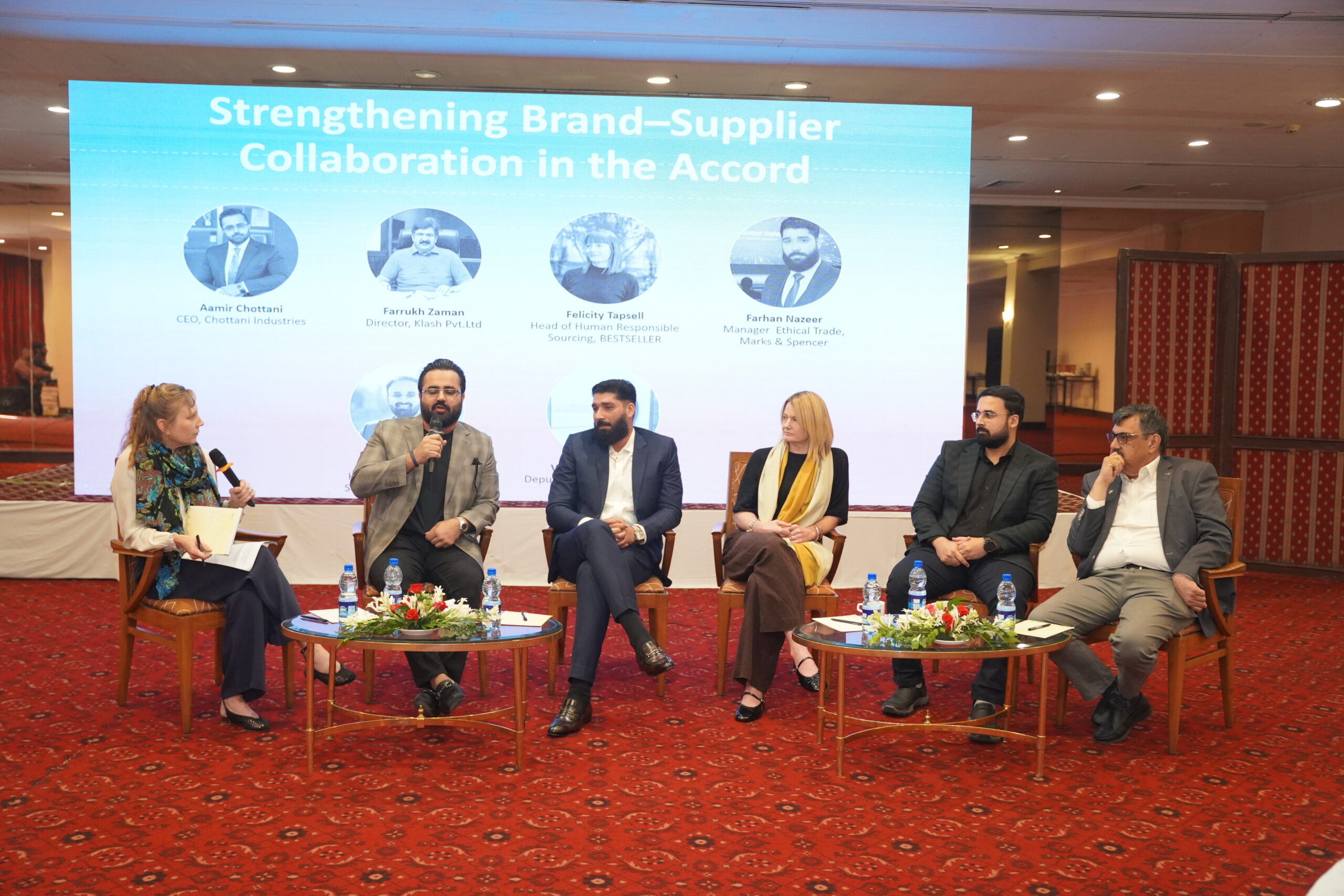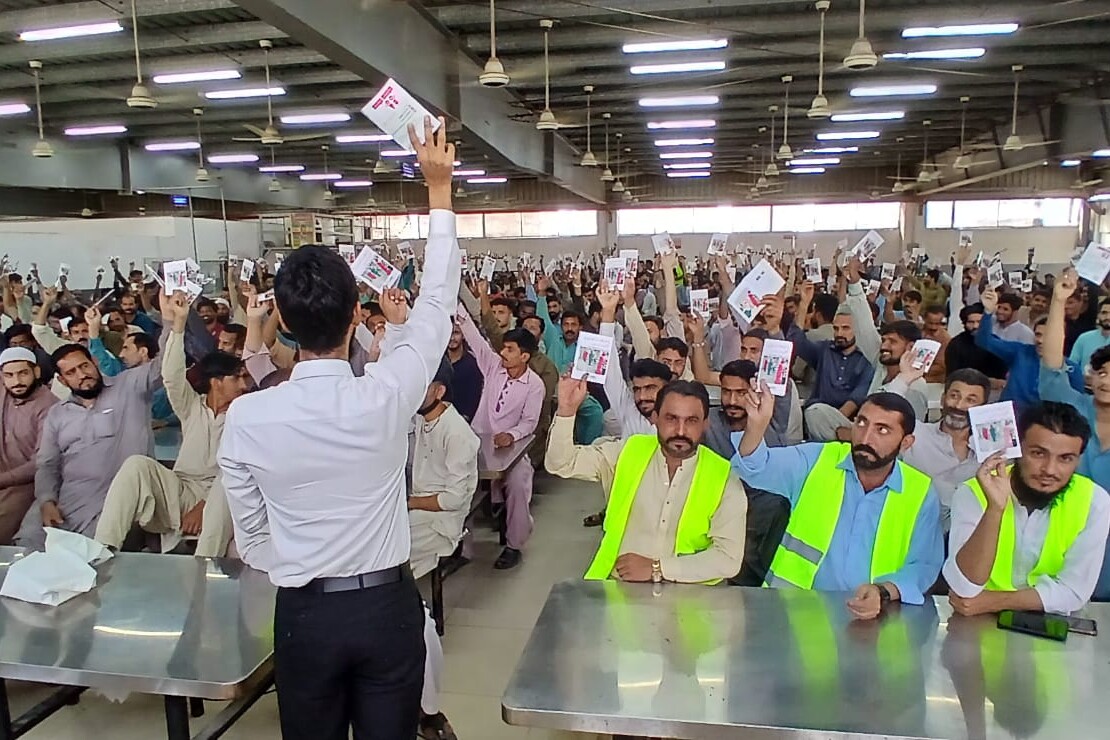Recap: Accord All Signatory Meeting 2025

The International Accord held its 2025 All Signatory Meeting on 21 May at Hotel Casa in Amsterdam, the Netherlands. The meeting offered valuable insights into the progress and operations of the Accord’s Country-Specific Safety Programs (CSSPs) in Bangladesh and Pakistan, while exploring future opportunities for expanding the Accord’s scope and impact.
The event brought together over 120 participants from key stakeholder groups, including brand, trade union, and NGO signatories. It also welcomed colleagues from the RMG Sustainability Council (RSC) and the Pakistan Accord Secretariat.
The day commenced with opening remarks from Joris Oldenziel, Executive Director of the International Accord. He welcomed attendees and reflected on the broader socio-political and legislative developments affecting the global textile and garment industry.
Oldenziel noted that, despite ongoing global challenges, the Accord continues to gain momentum. He highlighted that the International Accord and its Bangladesh country program have reached a historic milestone—achieving the highest number of signatories to date.

Updates on the Pakistan Accord
Zulfiqar Shah, Country Director of the Pakistan Accord, and Paul Rigby, Chief Safety Officer (CSO), shared insights on the Pakistan Accord’s implementation. They outlined the growing coverage of signatories, factories, and workers under the country program. Shah highlighted the encouraging reception from factories for the worker safety training sessions, as well as the positive feedback received on the government capacity-building program.
Rigby provided detailed updates on the factory remediation work underway in Pakistan, including the fire, electrical and structural safety issues at covered factories since the start of inspections in October 2023. He noted overstressed structural columns and a lack of access to safe egress for workers as common safety issues requiring remediation.
He further highlighted the ongoing knowledge exchange and collaboration between the engineers from the Pakistan and Bangladesh teams.
Rigby underscored the importance of engagement between brands, retailers and suppliers. He urged brands and retailers to be closely involved in the inspection and remediation process, stressing that proactive collaboration enables more effective risk identification, accelerates remediation timelines, and fosters stronger relationships with factories.
Updates on the Bangladesh Safety Agreement
Abdul Haque, Managing Director of RSC, along with Shah Sefat Uddin Ahmed, Senior Head of the Remediation Program, and MD Hassan Nawazis, Chief Safety Officer (CSO), shared updates and insights into the ongoing health and safety efforts under the Bangladesh Safety Agreement.
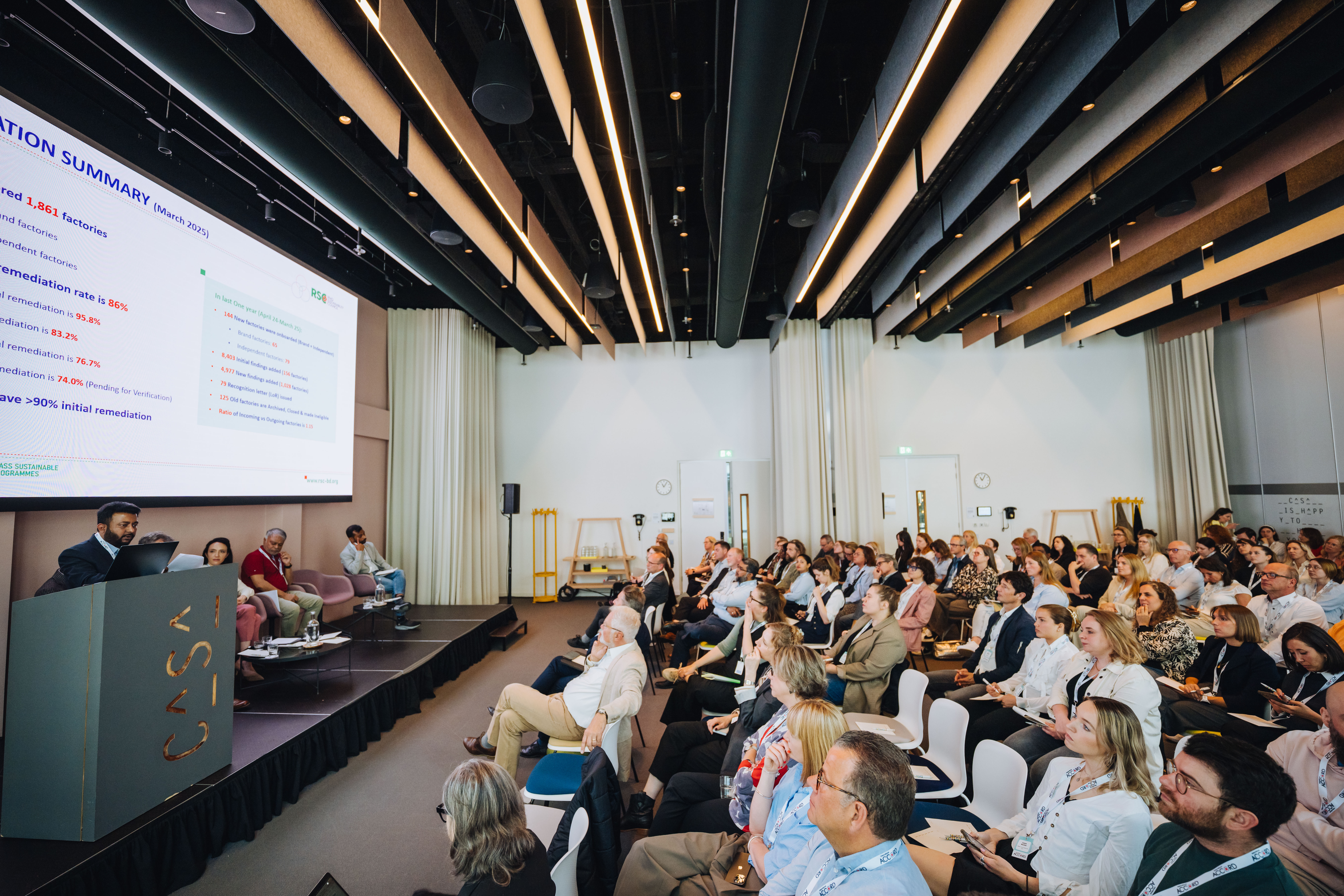
The team outlined several key measures aimed at strengthening remediation efforts at covered factories in Bangladesh. These include:
- Capacity-building workshops for factories and service providers
- Clear communication of remediation requirements following inspections
- Introduction of Stage 1 meetings to address non-compliances promptly
Updates included progress on inspection scopes at covered factories and the expansion of the Occupational Safety and Health (OSH) Complaints Mechanism, and the planned digitalisation to streamline organisational processes.
Perspectives on the Complaints Mechanism
Kirstine Drew, Chief Complaints Officer for the Pakistan Accord, and Ovijit Mutsuddi, Head of the Occupational Safety and Health (OSH) Complaints Mechanism Department at the RSC, presented comparative insights from Bangladesh and Pakistan on the Accord’s Complaints Mechanism.
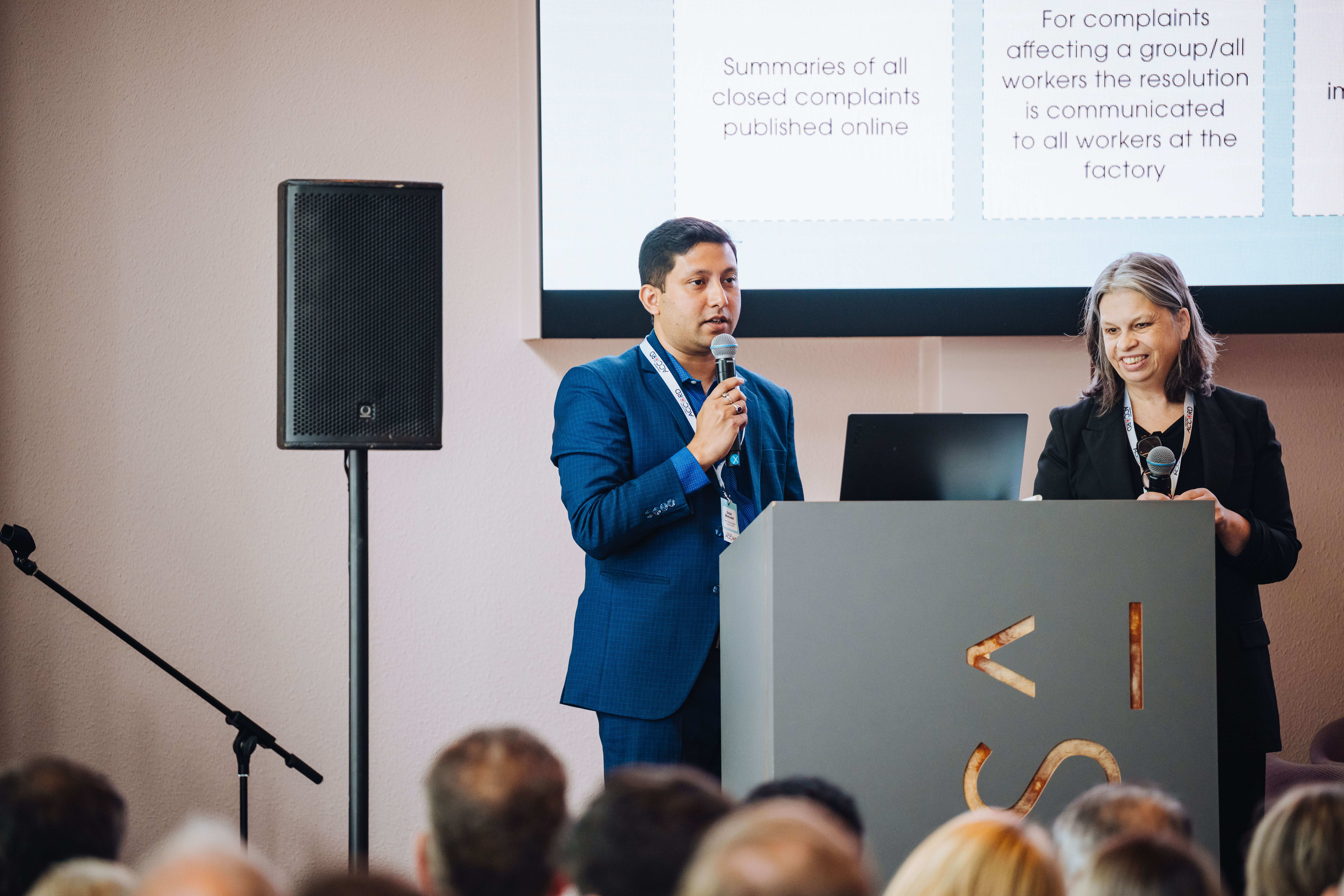
- Drew and Mutsuddi emphasised the core principles that define the Accord’s Complaints Mechanism—accessibility, legitimacy, confidentiality, enforceability and transparency. They also emphasised the dual role of a complaints mechanism – providing access to remedy for workers as well as information that brands and retailers can use to identify and prevent adverse impacts as part of their HRDD. They provided perspectives on both roles.
- They discussed the nature of complaints received and highlighted the differences between Bangladesh’s more mature system and the relatively nascent system in Pakistan. They also provided a breakdown of OSH versus non-OSH complaints, noting that the Accord’s Mechanism currently covers OSH-related issues.
- Mutsuddi shared data and analysis from Bangladesh. Common OSH-related complaints include maternity rights violations, workplace violence, sickness, and forced overtime. While non-OSH complains often involve issues such as wages, benefits and leave entitlements, and unfair terminations.
- Drew offered early-stage observations from the Pakistan Accord, describing a nascent system, with a smaller data set and a more dynamic and fluctuating distribution of complaints. OSH-related issues in Pakistan include forced overtime, workplace injuries, lack of drinking water, and insufficient personal protective equipment (PPE). Non-OSH complaints typically involve non-payment of wages and overtime, especially for contract workers.
A dynamic Q&A session followed, featuring insights from Lena Peleikis, Head of Human Rights & Responsible Supply Chain at the Otto Group, and Christina Hajagos-Clausen, Director of the Textile and Garment Industry at IndustriALL. They discussed the strategic role brands and trade unions can play in strengthening the Mechanism.
The session explored the potential for expanding the scope of the Complaints Mechanism beyond OSH. It also provided suggestions on how brands and retailers can more effectively collaborate in using the data from the Accord Complaints Mechanism for identifying risks and preventing adverse impacts, including by using the structures of the Accord.
Rotating Breakout Sessions
Following the lunch break, smaller participant groups engaged in three rotating breakout sessions:
- Launch of the Accord Signatory Portal: Led by Adelia Arista (Data Analysis & Systems Coordinator) and Colm Quinn (Head of Operations), this session introduced the new internal portal designed for Pakistan Accord signatories as part of the Accord’s broader digital transition. Arista demonstrated key functionalities of the portal and explained how it streamlines access to information about factory progress in Pakistan for signatories.
- Factory Disclosure under the Accord: Facilitated by Koen Oosterom (Head of Signatory Engagement), this session focused on the factory disclosure process under the Accord. Oosterom outlined the requirements and process for signatories to list factories under the Accord, emphasising its central role in ensuring supply chain transparency and accountability.
- External Session by ILO: Employment Injury Scheme Pilot in Bangladesh: Hosted by Dr. Anne Marie La Rosa (ILO), this session explored ILO’s Employment Injury Scheme Pilot in Bangladesh. Dr. La Rosa presented the business case for responsible supply chains, highlighting how the pilot supports worker protections and improves supply chain monitoring for brands.
Accord Expansion, Pakistan Accord Renewal and Brand Caucus
Following the breakout sessions, Oldenziel presented insights into the expansion of the Accord to other countries. The session provided an opportunity for signatories to discuss their interest in expanding the Accord’s work, informed by key findings from a brand survey conducted in March 2025.
The survey results included details on major sourcing countries, the types of supplier facilities involved and priority countries for potential expansion.
In recognition of the need for continued work in Pakistan, brands and trade unions engaged in a discussion around the upcoming negotiations and renewal of the Pakistan Accord. The session focused on the key considerations necessary to ensure the continuity and further strengthening of the Accord’s commitments in Pakistan.
On 22 May, Accord signatory brands convened a Brand Caucus to discuss important topics among peers. Discussions covered the renewal of the Pakistan Accord, the potential expansion of the Complaints Mechanism to address non-OSH grievances, and the Accord’s expansion to other countries.
We extend our sincere thanks to all attendees for their openness, insights, and recommendations, which are critical to effectively implementing the Accord’s programs and contributing to a safer and more responsible garment and textile industry. We also thank our moderator, Olivia Windham Stewart, and the Hotel Casa team for their invaluable organisational support in making this event possible.
For more information, contact:
- media@internationalaccord.org
- Mini Dixit, Communications Advisor: mini.dixit@internationalaccord.org
Related updates
November 9, 2025
The International Accord is pleased to announce that, from mid-November 2025, the Worker Complaints Mechanism in Bangladesh will be expanded to cover issues beyond Occupational Safety and Health (OSH).
October 23, 2025
On 23 October 2025, the Pakistan Accord hosted a Brand-Supplier Roundtable at the Avari Hotel in Lahore, bringing together over 50 brand representatives and 30 key suppliers.
October 22, 2025
This briefing provides updates on the number of signatory brands, factories and workers. Additionally, it includes guidance on the actions suppliers should take to address immediate safety findings.
January 20, 2026
We extend our deepest condolences to the victims and families affected by the tragic fire at Gul Plaza in Karachi on 17 January.
November 24, 2025
The International Accord is saddened by the earthquake in Bangladesh and concerned about the reported injuries and loss of life. Our thoughts are with all affected individuals and families.
November 9, 2025
The International Accord is pleased to announce that, from mid-November 2025, the Worker Complaints Mechanism in Bangladesh will be expanded to cover issues beyond Occupational Safety and Health (OSH).

